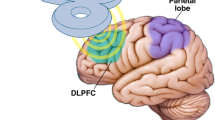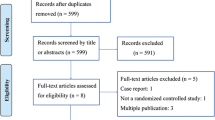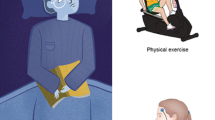Abstract
Poor sleep quality is prevalent among people all across the world. Different methods have been developed to help clinicians improve sleep quality. Good sleep quality is associated with positive factors, such as resilience and optimism. In this regard, this study aimed to determine the transcranial direct current stimulation (tDCS) effect on sleep quality, resilience, and optimism. This semi-experimental study was conducted using a pre- and post-test design with a control group in November and December 2019. The study sample consisted of 20 students with poor sleep quality from Semnan University (Semnan City, Iran), ranging from an associate degree to a doctorate. They were randomly divided into experimental and control groups (2 groups of 10 subjects). This study used tDCS for interventions, as well as the Pittsburgh Sleep Quality Index (PSQI), Life Orientation Test (LOT), and Connor-Davidson Resilience Scale (CD-RISC) to assess research variables in a pre and post-test design. The experimental group received 10 sessions of therapeutic intervention, while the control group only received a sham wave. After analyzing data by multivariate and univariate analyses of covariance, the results demonstrated that tDCS interventions significantly affected resilience and sleep quality. However, there was no significant effect of tDCS on optimism. Our findings suggested that tDCS may be an effective way to improve sleep quality and resilience, and it could be used as a therapeutic method.
Similar content being viewed by others
Data Availability
The data used to support the findings of this study are available from the corresponding author upon request.
References
Åkerstedt, T., Hume, K. E. N., Minors, D., & Waterhouse, J. I. M. (1994). The subjective meaning of good sleep, an intraindividual approach using the Karolinska sleep diary. Perceptual and motor skills, 79(1), 287–296. https://doi.org/10.2466/2Fpms.1994.79.1.287.
Asghari, A., Kamrava, S. K., Hemami, M. R., Jalessi, M., Yazdanifard, P., Farhadi, M., ... & Tabatabaie, S. S. (2015). Cigarette smoking habit and subjective quality of sleep. Scimetr, 3(1). Advance online publication. DOI: https://doi.org/10.5812/scimetr.18454.
Aziz, M., Ali, S. S., Das, S., Younus, A., Malik, R., Latif, M. A., et al. (2017). Association of subjective and objective sleep duration as well as sleep quality with non-invasive markers of sub-clinical cardiovascular disease (CVD): A systematic review. Journal of Atherosclerosis and Thrombosis, 24(3), 208–226. https://doi.org/10.5551/jat.36194.
Berteotti, C., Cerri, M., Luppi, M., Silvani, A., & Amici, R. (2015). An overview of sleep physiology and and sleep regulation. In Guglietta, A. (Ed.). Drug Treatment of Sleep Disorders (pp. 4–8). Springer.
Bonanno, G. A., & Diminich, E. D. (2013). Annual research review: Positive adjustment to adversity–trajectories of minimal–impact resilience and emergent resilience. Journal of Child Psychology and Psychiatry, 54(4), 378–401. https://doi.org/10.1111/jcpp.12021.
Brunoni, A. R., Nitsche, M. A., Bolognini, N., Bikson, M., Wagner, T., Merabet, L., et al. (2012). Clinical research with transcranial direct current stimulation (tDCS): Challenges and future directions. Brain Stimulation, 5(3), 175–195. https://doi.org/10.1016/j.brs.2011.03.002.
Buysse, D. J., Reynolds III, C. F., Monk, T. H., Berman, S. R., & Kupfer, D. J. (1989). The Pittsburgh sleep quality index: A new instrument for psychiatric practice and research. Psychiatry Research, 28(2), 193–213. https://doi.org/10.1016/0165-1781(89)90047-4.
Carnevali, L., Pattini, E., Sgoifo, A., & Ottaviani, C. (2019). Effects of prefrontal transcranial direct current stimulation on autonomic and neuroendocrine responses to psychosocial stress in healthy humans. Stress, 23(1), 26–36. https://doi.org/10.1080/10253890.2019.1625884.
Carskadon, A. M., & Dement, W. C. (2017). Normal Human Sleep: An Overview. In Kryger, M. H., Roth, T., & Dement, W. C. Principles and practice of sleep medicine, 6th edition (p. 15). Elsevier.
Carver, C. S., Scheier, M. F., & Segerstrom, S. C. (2010). Optimism. Clinical Psychology Review, 30(7), 879–889. https://doi.org/10.1016/j.cpr.2010.01.006.
Chehri, A., Nourozi, M., Eskandari, S., Khazaie, H., Hemati, N., & Jalali, A. (2020). Validation of the Persian version of the Pittsburgh sleep quality index in elderly population. Sleep Science, 13(2), 119–124.
Cheng, M. Y., Wang, M. J., Chang, M. Y., Zhang, R. X., Gu, C. F., & Zhao, Y. H. (2020). Relationship between resilience and insomnia among the middle-aged and elderly: Mediating role of maladaptive emotion regulation strategies. Psychology, Health & Medicine. Advance online publication. https://doi.org/10.1080/13548506.2020.1734637
Connor, K. M., & Davidson, J. R. (2003). Development of a new resilience scale: The Connor-Davidson resilience scale (CD-RISC). Depression and Anxiety, 18(2), 76–82. https://doi.org/10.1002/da.10113.
Downing, M. J., Millar, B. M., & Hirshfield, S. (2020). Changes in sleep quality and associated health outcomes among gay and bisexual men living with HIV. Behavioral Sleep Medicine, 18(3), 406–419. https://doi.org/10.1080/15402002.2019.1604344.
Fasano, J., Shao, T., Huang, H. H., Kessler, A. J., Kolodka, O. P., & Shapiro, C. L. (2020). Optimism and coping: Do they influence health outcomes in women with breast cancer? A systemic review and meta-analysis. Breast Cancer Research and Treatment, 183, 495–501. https://doi.org/10.1007/s10549-020-05800-5.
Feder, A., Haglund, M., Wu, G., Southwick, S. M., & Charney, D. S. (2013). The neurobiology of resilience. In D. S. Charney, J. D. Buxbaum, P. Sklar, & E. J. Nestler (Eds.), Neurobiology of mental illness (pp. 1144–1170). Oxford University Press.
Frase, L., Jahn, F., Tsodor, S., Krone, L., Selhausen, P., Feige, B., ... & Nissen, C. (2020). Offline bi-frontal anodal transcranial direct current stimulation decreases Total sleep time without disturbing overnight memory consolidation. Neuromodulation: Technology at the Neural Interface. Advance online publication. https://doi.org/10.1111/ner.13163
Hassanshahi, M. M. (2002). The relationship between optimism and coping strategies in university students. The Quarterly Journal of Fundamentals of Mental Health, 4, 86–98.
Hernandez, R., Vu, T. H. T., Kershaw, K. N., Carnethon, M., Knutson, K. L., Colangelo, L., & Liu, K. (2014). Abstract P109: The cross-sectional and longitudinal association of dispositional optimism with sleep duration and quality: Findings form the coronary artery risk development in young adults (CARDIA) study. Circulation, 129(suppl_1), AP109-AP109.
Jaehne, A., Unbehaun, T., Feige, B., Cohrs, S., Rodenbeck, A., Schütz, A. L., Uhl, V., Zober, A., & Riemann, D. (2015). Sleep changes in smokers before, during and 3 months after nicotine withdrawal. Addiction Biology, 20(4), 747–755. https://doi.org/10.1111/adb.12151.
James, P., Kim, E. S., Kubzansky, L. D., Zevon, E. S., Trudel-Fitzgerald, C., & Grodstein, F. (2019). Optimism and healthy aging in women. American Journal of Preventive Medicine, 56(1), 116–124. https://doi.org/10.1016/j.amepre.2018.07.037.
Jones-Bitton, A., Best, C., MacTavish, J., Fleming, S., & Hoy, S. (2020). Stress, anxiety, depression, and resilience in Canadian farmers. Social Psychiatry and Psychiatric Epidemiology, 55(2), 229–236. https://doi.org/10.1007/s00127-019-01738-2.
Kalisch, R., Baker, D. G., Basten, U., Boks, M. P., Bonanno, G. A., Brummelman, E., et al. (2017). The resilience framework as a strategy to combat stress-related disorders. Nature Human Behaviour, 1(11), 784–790. https://doi.org/10.1038/s41562-017-0200-8.
Khayyer, Z., Ngaosuvan, L., Sikström, S., & Ghaderi, A. H. (2018). Transcranial direct current stimulation based on quantitative electroencephalogram combining positive psychotherapy for major depression. Journal of Integrative Neuroscience, 17(2), 141–155. https://doi.org/10.3233/JIN-170045.
Khoshouei, M. S. (2009). Psychometric evaluation of the Connor-Davidson resilience scale (CD-RISC) using Iranian students. International Journal of Testing, 9(1), 60–66.
Kılınç, G., Yıldız, E., & Kavak, F. (2019). The relationship between psychological resilience and life satisfaction in COPD patients. Journal of Psychiatric Nursing/Psikiyatri Hemsireleri Dernegi, 10(2), 111–116. https://doi.org/10.14744/phd.2019.60362.
Kosari, Z., Dadashi, M., Maghbouli, M., & Mostafavi, H. (2019). Comparing the effectiveness of neurofeedback and transcranial direct current stimulation on sleep quality of patients with migraine. Basic and Clinical Neuroscience, 10(6), 579–588. https://doi.org/10.32598/2FBCN.10.6.651.3.
Lemola, S., Räikkönen, K., Gomez, V., & Allemand, M. (2013). Optimism and self-esteem are related to sleep. Results from a large community-based sample. International Journal of Behavioral Medicine, 20(4), 567–571. https://doi.org/10.1007/s12529-012-9272-z.
Martínez-Martí, M. L., & Ruch, W. (2017). Character strengths predict resilience over and above positive affect, self-efficacy, optimism, social support, self-esteem, and life satisfaction. The Journal of Positive Psychology, 12(2), 110–119. https://doi.org/10.1080/17439760.2016.1163403.
Mignot, E., Taheri, S., & Nishino, S. (2002). Sleeping with the hypothalamus: Emerging therapeutic targets for sleep disorders. Nature Neuroscience, 5(11), 1071–1075. https://doi.org/10.1038/nn944.
Nitsche, M. A., Cohen, L. G., Wassermann, E. M., Priori, A., Lang, N., Antal, A., Paulus, W., Hummel, F., Boggio, P. S., Fregni, F., & Pascual-Leone, A. (2008). Transcranial direct current stimulation: State of the art 2008. Brain Stimulation, 1(3), 206–223. https://doi.org/10.1016/j.brs.2008.06.004.
Parrino, L., & Vaudano, A. E. (2018). The resilient brain and the guardians of sleep: New perspectives on old assumptions. Sleep Medicine Reviews, 39, 98–107. https://doi.org/10.1016/j.smrv.2017.08.003.
Peres, M. F., Oliveira, A. B., Mercante, J. P., Kamei, H. H., Tobo, P. R., Rozen, T. D., et al. (2019). Optimism, pessimism, and migraine: A cross-sectional, population-based study. Headache: The Journal of Head and Face Pain, 59(2), 205–214. https://doi.org/10.1111/head.13471.
Pilcher, J. J., Ginter, D. R., & Sadowsky, B. (1997). Sleep quality versus sleep quantity: Relationships between sleep and measures of health, well-being and sleepiness in college students. Journal of Psychosomatic Research, 42(6), 583–596. https://doi.org/10.1016/S0022-3999(97)00004-4.
Ramírez-Maestre, C., Esteve, R., López-Martínez, A. E., Serrano-Ibáñez, E. R., Ruiz-Párraga, G. T., & Peters, M. (2019). Goal adjustment and well-being: The role of optimism in patients with chronic pain. Annals of Behavioral Medicine, 53(7), 597–607. https://doi.org/10.1093/abm/kay070.
Rozanski, A., Bavishi, C., Kubzansky, L. D., & Cohen, R. (2019). Association of optimism with cardiovascular events and all-cause mortality: A systematic review and meta-analysis. JAMA Network Open, 2(9), 1–12. https://doi.org/10.1001/jamanetworkopen.2019.12200.
Scheier, M. F., & Carver, C. S. (1985). Optimism, coping, and health: Assessment and implications of generalized outcome expectancies. Health Psychology, 4(3), 219–247. https://doi.org/10.1037/0278-6133.4.3.219.
Scheier, M. F., & Carver, C. S. (1992). Effects of optimism on psychological and physical well-being: Theoretical overview and empirical update. Cognitive Therapy and Research, 16(2), 201–228. https://doi.org/10.1007/BF01173489.
Sadock, B., Kaplan, S. V., & Sadock, V. K. (2003). Sadocks synopsis of psychiatry. Williams and Wilkins.
Segerstrom, S. C., Carver, C. S., & Scheier, M. F. (2017). Optimism. In The happy mind: Cognitive contributions to well-being (pp. 195-212). Springer.
Salces-Cubero, I. M., Ramírez-Fernández, E., & Ortega-Martínez, A. R. (2019). Strengths in older adults: Differential effect of savoring, gratitude and optimism on well-being. Aging & Mental Health, 23(8), 1017–1024. https://doi.org/10.1080/13607863.2018.1471585.
Sarmiento, C. I., San-Juan, D., & Prasath, V. B. S. (2016). Letter to the editor: Brief history of transcranial direct current stimulation (tDCS): From electric fishes to microcontrollers. Psychological Medicine, 46(15), 3259–3261. https://doi.org/10.1017/S0033291716001926.
Sullivan, K., & Ordiah, C. (2018). Association of mildly insufficient sleep with symptoms of anxiety and depression. Neurology, Psychiatry and Brain Research, 30, 1–4. https://doi.org/10.1016/j.npbr.2018.03.001.
Weitzer, J., Papantoniou, K., Lázaro-Sebastià, C., Seidel, S., Klösch, G., & Schernhammer, E. (2021). The contribution of dispositional optimism to understanding insomnia symptomatology: Findings from a cross-sectional population study in Austria. Journal of Sleep Research, 30(1), e13132.
Xi, Y., Yu, H., Yao, Y., Peng, K., Wang, Y., & Chen, R. (2020). Post-traumatic stress disorder and the role of resilience, social support, anxiety and depression after the Jiuzhaigou earthquake: A structural equation model. Asian Journal of Psychiatry, 49, 1–17.
Author information
Authors and Affiliations
Corresponding author
Ethics declarations
Ethical Approval
All study procedures were conducted regarding ethical standards. The study was performed in accordance with the Declaration of Helsinki and its later amendments or comparable ethical standards; this study was approved by the Ethics Committee of Semnan University of Medical Sciences (Semnan, Iran; ID: IR.SEMUMS.REC.1398.045).
Conflict of Interest
The authors declare that there is no conflict of interest regarding the publication of this paper.
Consent to Participate
Informed consent was obtained from all participants included in the study. All data generated or analysed during this study are included in this published article.
Consent to Publication
All participants and authors of the present study gave their consent for publication of this paper.
Additional information
Publisher’s Note
Springer Nature remains neutral with regard to jurisdictional claims in published maps and institutional affiliations.
Rights and permissions
About this article
Cite this article
Mohebbian, B., Najafi, M. & Sabahi, P. The effect of transcranial direct current stimulation on sleep quality, resilience, and optimism. Curr Psychol 42, 5785–5792 (2023). https://doi.org/10.1007/s12144-021-01944-9
Accepted:
Published:
Issue Date:
DOI: https://doi.org/10.1007/s12144-021-01944-9




